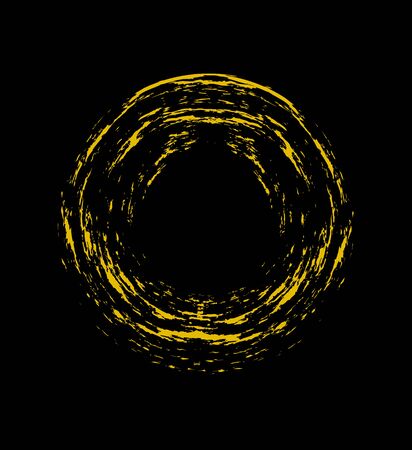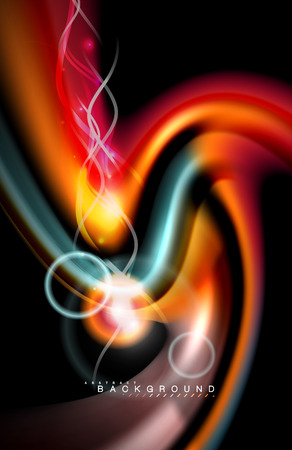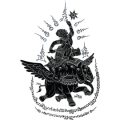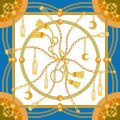Introduction: Charting the Stars in Contemporary British Fiction
In recent decades, astrology and fate have re-emerged as compelling themes within modern British novels, weaving themselves into narratives that reflect both personal introspection and broader cultural anxieties. British authors frequently turn to the celestial—star signs, horoscopes, planetary alignments—not simply as decorative motifs but as frameworks for exploring questions of destiny, choice, and identity. These recurring concepts serve to interrogate whether our paths are preordained or subject to the unpredictable tides of chance and agency. Against the backdrop of Britain’s rich literary tradition, where fate and fortune have long been debated, contemporary fiction reinterprets these ideas for a generation navigating uncertainty, disconnection, and the search for meaning. This intersection between astrology and fate is not just a narrative device; it mirrors society’s ongoing fascination with the cosmos as a source of guidance amid the complexities of modern life. As we delve deeper into this topic, it becomes clear that astrology and fate are more than passing interests—they are cultural touchstones that illuminate how British writers grapple with existential questions in an era marked by rapid social change.
Astrological Motifs in British Storytelling
Modern British authors have shown a particular fascination with weaving astrological motifs into their storytelling. This approach not only enriches the narrative texture but also mirrors the nuanced ways fate and self-determination are negotiated within contemporary British society. The use of horoscopes, star signs, and celestial symbolism offers writers a subtle yet potent toolkit for character development, plot progression, and thematic layering.
Embedding Horoscope and Signs into Characterisation
Writers often assign specific zodiac signs to their characters, either explicitly or through personality traits and behavioural cues. For example, a protagonist may exhibit the stubbornness of a Taurus or the adaptability of a Gemini, which influences how they respond to challenges within the narrative. This alignment between character arc and astrological archetype provides readers with an additional interpretive layer.
| Zodiac Sign | Common Traits | Character Example in Modern British Novels |
|---|---|---|
| Aries | Bold, impulsive, pioneering | A rebellious teen challenging tradition |
| Cancer | Intuitive, nurturing, sensitive | A family matriarch holding everyone together |
| Virgo | Analytical, meticulous, reserved | An investigative journalist uncovering secrets |
| Sagittarius | Adventurous, philosophical, restless | A traveller searching for identity across continents |
Celestial Language as Narrative Device
The language of astrology—planets in retrograde, lunar cycles, conjunctions—serves as more than mere metaphor in modern British fiction. Authors employ such terminology to foreshadow events or to signal turning points in the storyline. Phrases like “Mercury in retrograde” have entered everyday vernacular in Britain and appear in dialogue or internal monologues, grounding mystical ideas within a familiar cultural context.
Thematic Resonance: Fate versus Agency
Through these motifs, authors engage with broader questions about destiny and free will. Astrological references can reinforce themes of inevitability or challenge them by showing characters striving against their stars. The result is a dynamic interplay between inherited tradition and contemporary scepticism—a hallmark of modern British literatures engagement with fate.

3. Fate and Free Will: British Perspectives
British literature has long been fascinated by the interplay between fate and free will, but recent novels offer particularly nuanced perspectives shaped by contemporary cultural attitudes. Unlike more fatalistic traditions, modern British writers often approach destiny with a signature blend of scepticism, humour, and pragmatism. This is evident in works such as Zadie Smith’s White Teeth, where characters grapple with the weight of family legacies and historical coincidence, yet persistently carve out their own paths. Similarly, Ali Smith’s Autumn explores how the randomness of life and the pull of larger historical currents intersect with individual agency. These narratives frequently challenge deterministic views, instead highlighting the unpredictable fusion of personal choice and circumstantial happenstance. The British tendency to question grand narratives—sometimes with a dry wit or understated irony—creates space for astrology to be both playfully entertained and critically examined within plotlines. By positioning fate as something negotiated rather than simply accepted, these novels invite readers to reflect on their own capacity for decision-making amid uncertainty. In this way, the intersection of astrology and fate in modern British fiction is less about surrendering to cosmic forces than engaging thoughtfully with them, all while maintaining a distinctively British sense of agency.
4. Cultural Resonance: Astrology in British Popular Culture
Astrology has experienced a notable revival in contemporary British society, with its influence extending beyond mere entertainment and into the fabric of everyday life. This cultural resurgence is visible across various media—newspapers, magazines, social platforms, and even public transport advertisements all feature horoscopes and astrological content. The widespread presence of astrology in Britain reflects not only an appetite for escapism but also a desire to find meaning and personal narrative within a rapidly changing world.
Modern British novels have naturally absorbed these cultural shifts, weaving astrological motifs and language into their plots and character development. Authors often use astrology as a shorthand for personality, motivation, or destiny, subtly shaping how readers perceive characters’ choices and relationships. This literary device resonates with audiences familiar with the “star sign” conversations that pepper British pubs or morning commutes.
Astrology’s Role in Contemporary Storytelling
Writers are increasingly attentive to the nuanced ways astrology can serve as both a plot mechanism and a thematic anchor. For example, characters may consult horoscopes before making decisions, or attribute key events to planetary alignments—a nod to the everyday rituals observed by many Britons. These narrative strategies mirror real-life attitudes towards fate, uncertainty, and hope.
Common Astrological Tropes in Modern British Novels
| Trope | Description | Cultural Significance |
|---|---|---|
| The Horoscope Catalyst | A character’s action is prompted by reading their daily horoscope. | Reflects reliance on external guidance during times of uncertainty. |
| Star-Crossed Lovers | Relationship dynamics influenced by incompatible star signs. | Invokes classic British romantic fatalism with a modern twist. |
| Zodiac Archetypes | Characters embody traits associated with their signs (e.g., stubborn Taurus). | Offers immediate relatability for readers familiar with astrological stereotypes. |
| Fateful Coincidences | Significant events align with cosmic forecasts or celestial phenomena. | Taps into the collective fascination with synchronicity and chance. |
Cultural Impact on Reader Reception
The interplay between astrology and fate within these novels offers British readers both comfort and conversation. The blending of old beliefs with modern anxieties allows writers to explore questions of agency versus destiny without resorting to overt mysticism. Instead, astrology functions as a cultural touchstone—an accessible framework through which both authors and audiences negotiate meaning in contemporary life.
This resonance ensures that astrology remains more than just a passing trend; it is now embedded within the thematic DNA of modern British fiction, influencing narrative form as much as it colours day-to-day discourse.
5. Case Studies: Notable British Novels
Astrology and Fate as Narrative Engines
When considering the intersection of astrology and fate in modern British novels, a handful of works stand out for their nuanced and inventive use of these themes. The following in-depth examinations highlight how contemporary authors have woven astrological symbolism and the concept of destiny into their stories, influencing both plot development and character evolution.
“White Teeth” by Zadie Smith
Zadie Smith’s “White Teeth” is frequently cited for its exploration of identity, heritage, and chance. While not overtly astrological, Smith employs motifs of coincidence and inevitability that mirror astrological determinism. Characters often reflect on the timing of key events—birthdays, anniversaries, historical moments—suggesting an unseen pattern or cosmic order at play. This subtle infusion frames personal fate as something simultaneously inherited and written in the stars, resonating with a particularly British scepticism towards both determinism and free will.
“Cloud Atlas” by David Mitchell
Though international in scope, “Cloud Atlas” features several British characters whose lives are evidently shaped by cycles reminiscent of astrological ages. Mitchell’s structure—nested narratives spanning centuries—echoes the cyclical nature of planetary movements. Characters confront destinies seemingly preordained, yet are given moments to exercise agency within those constraints. The interplay between predetermined cosmic patterns and individual choices becomes central to each storyline, reflecting broader questions about fate familiar to British literary tradition.
“Life After Life” by Kate Atkinson
Kate Atkinson’s novel directly interrogates fate through Ursula Todd’s repeated rebirths—a narrative device evocative of astrological cycles and the concept of returning to one’s natal chart for new possibilities. Each iteration of Ursula’s life is subtly influenced by time, setting, and circumstance, echoing how astrologers read different houses and transits as shaping personal destiny. Atkinson’s deft handling of fate versus autonomy invites readers to question how much control anyone truly has over their path.
Cultural Context and Reception
Modern British readers tend to approach astrology with irony or gentle curiosity rather than strict belief. These novels reflect that cultural stance: astrology functions less as prophecy and more as a framework for contemplating life’s unpredictability. Through layered plots and complex characters, British writers use astrological themes to interrogate notions of fate without resorting to fatalism—mirroring Britain’s own ambivalent relationship with mysticism in a rational age.
6. Conclusion: Reading the Future—Astrology, Fate, and British Literary Identity
In synthesising the central threads woven through modern British novels, it becomes clear that astrology and fate play pivotal roles in shaping both narrative direction and literary identity. The exploration of celestial influence and preordained destiny is not merely a matter of plot mechanics; rather, it reflects a broader cultural engagement with uncertainty, agency, and belief systems deeply embedded within the British psyche.
The Persistence of Astrological Motifs
Despite the rise of scientific rationalism and scepticism in contemporary Britain, authors persistently return to astrological imagery as a means of interrogating characters’ choices and societal pressures. The zodiac becomes both a literal and metaphorical device—one that allows for the negotiation between personal autonomy and external control. This motif’s adaptability ensures its continued relevance within the evolving literary landscape.
Fate as Narrative Structure
Fate operates not just as a theme but as an architectural framework for storytelling. Modern British writers employ fate to challenge linearity, disrupt traditional narrative expectations, and introduce ambiguity regarding cause and effect. This interplay creates a dynamic tension, inviting readers to question whether lives are governed by cosmic patterns or random happenstance—a tension particularly resonant in a society negotiating tradition and change.
Prospects for Further Exploration
The intersection of astrology and fate remains fertile ground for further literary investigation. There is ample scope for analysing how these motifs intersect with issues of class, gender, migration, and technology in future works. Additionally, examining reader reception may offer insights into how contemporary audiences interpret destiny-related themes amid ongoing societal shifts. Ultimately, as British novelists continue to chart new imaginative territories, astrology and fate will likely remain key coordinates in mapping the nation’s literary identity.


